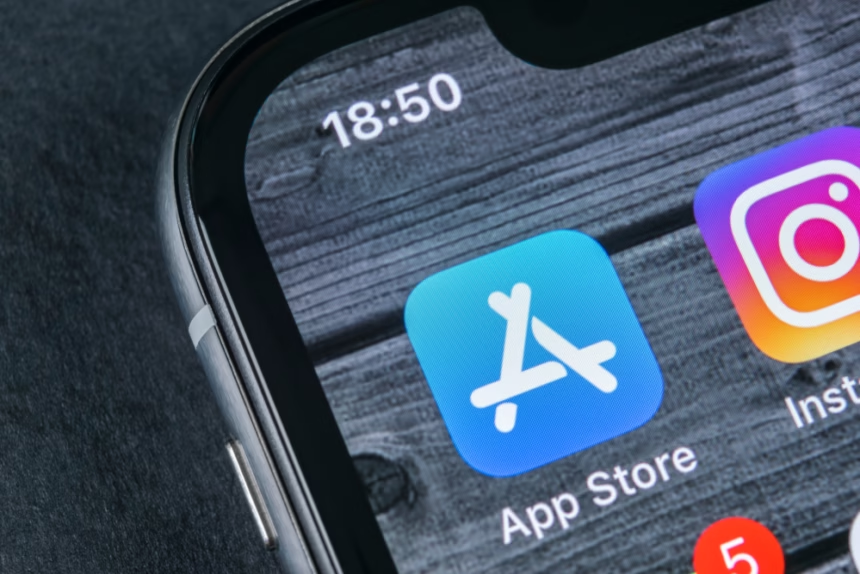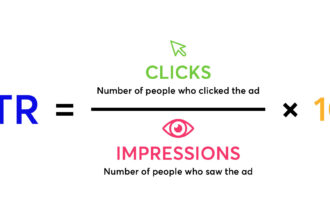App Store’s New AI-Generated Tags Are Live in the Beta
- What Are AI-Generated Tags?
- Why the App Store Needed AI-Generated Tags
- How AI Generates These Tags
- Where Are the Tags Visible?
- How This Impacts Developers
- App Store Search Just Got Smarter
- AI vs. OCR: What’s the Difference?
- Will These Tags Affect Rankings?
- What Developers Should Do Next
- The Future of App Discovery
The App Store’s new AI-generated tags are now officially live in the beta version of iOS 26, and Apple is making big promises about how this feature will help users discover apps more easily.
If you’re an app developer or someone who simply wants to understand how the App Store is changing, this is one update you should pay attention to.
What Are AI-Generated Tags?
Apple introduced the idea of App Store’s new AI-generated tags at WWDC 2025. These tags are designed to improve how people find apps in the App Store. In simple terms, the tags use artificial intelligence to scan through an app’s screenshots, descriptions, categories, and other metadata to pull out keywords or labels. These labels, or “tags,” are then attached to the app to help categorise it better.
Why the App Store Needed AI-Generated Tags
Before this update, App Store search rankings mostly relied on basic information like the app’s name, subtitle, and keyword list. While helpful, that system often missed valuable content hidden inside screenshots or descriptions. With App Store’s new AI-generated tags, Apple can now highlight this hidden content, making it easier for users to find exactly what they need.
For example, an app that teaches kids math through games might not rank high for “math games for kids” if the developer forgot to include those words in the keyword list. But with AI-generated tags, Apple can now detect this from the app’s screenshots or description and tag it accordingly.
How AI Generates These Tags
Apple is using large language models to scan each app’s public content and assign the best matching tags. These tags are not just randomly generated. They are based on actual features and functions the app offers. Once the AI suggests these tags, a team of human reviewers checks them before they go live. This helps ensure quality and accuracy.
Apple said that developers don’t need to add keywords to their screenshots anymore or worry too much about stuffing metadata. The AI will pick up what matters. This is especially good news for small developers who may not have SEO experts on their team.
Where Are the Tags Visible?
For now, the App Store’s new AI-generated tags only show up in the developer beta of iOS 26. Regular users on the public App Store can’t see them yet. But Apple confirmed that these tags will soon be visible on the search results page, right next to app categories.
Let’s say a user searches for a “workout planner.” If an app has the tag “daily workout plan,” it might show up even if the exact words weren’t in the app title. This is how App Store’s new AI-generated tags will boost visibility.
How This Impacts Developers
For developers, the update means they need to focus more on what their app truly offers, rather than just what they type in their metadata. If your app has useful features but they’re not clearly stated in the description, the AI might not tag your app correctly.
There is also a new section in App Store Connect where developers can see which tags Apple has assigned to their apps. Developers can remove tags they don’t like or confirm the ones they find helpful. This gives them some control while still benefiting from AI support.
App Store Search Just Got Smarter
The App Store’s new AI-generated tags are more than just labels. They make the entire search experience smarter. When a user clicks on one of these tags, they will be taken to a page that shows all apps with that tag. This creates a mini-directory of apps that offer the same feature, helping users compare options easily.
For example, clicking on the tag “budget tracker” might bring up 20 different finance apps, even if only a few of them used that exact phrase in their original description. This helps users make better decisions and gives developers more chances to get discovered.
Also Read: Google to Shut Down Android Instant Apps by December 2025, a Surprising Move. Good?
AI vs. OCR: What’s the Difference?
Some reports suggested that Apple was using OCR (optical character recognition) to pull text from screenshots. But Apple has made it clear that the App Store’s new AI-generated tags rely on AI language models, not OCR. That means the system understands context and meaning, not just visible text.
So if your app screenshot says “Track your fitness progress,” the AI might tag your app as “fitness tracker” or “daily workout log,” depending on the context. This smart matching is what makes App Store’s new AI-generated tags a big step forward.
Will These Tags Affect Rankings?
While the App Store’s new AI-generated tags are not yet affecting public search rankings, that may change soon. For now, they are helping users find apps more easily by organising them in a better way. Over time, Apple might use these tags to boost or lower an app’s search position, depending on how relevant it is to a user’s search.
Developers should start paying attention to these tags now. It could be the difference between showing up on page one or page three of search results.
What Developers Should Do Next
Here are some steps developers can take to prepare:
- Review your app’s description and screenshots to make sure they clearly show what your app does.
- Log in to App Store Connect and check the tags assigned to your app.
- Keep an eye on the beta features and read all updates from Apple regarding tag changes.
- Optimise your app’s content to make it AI-friendly. That means writing clearly, using simple language, and avoiding vague statements.
These simple actions can help you benefit from App Store’s new AI-generated tags without needing to be a tech expert.
The Future of App Discovery
This new tagging system is part of a bigger shift in how we find apps. Apple is also using AI to summarise app reviews and is working on other tools like custom product pages and smarter age-range filters. All these features are meant to give users more control and better results.
Tags like “budget tracker,” “language tutor,” or “daily workout plan” could become standard ways to browse the App Store in the future. This means people might not search only by app names, but also by what they want the app to do.
If you’re a developer, now is the time to understand and use this tool to your advantage. And if you’re a regular user, get ready for a search experience that feels more personal and helpful.
The Apple App Store’s new AI-generated tags are just getting started, but their impact could be huge in the months to come.
Don’t Miss: Google tests Audio Overviews for Search queries, a Genius Move Towards More Flexibility in 2025






